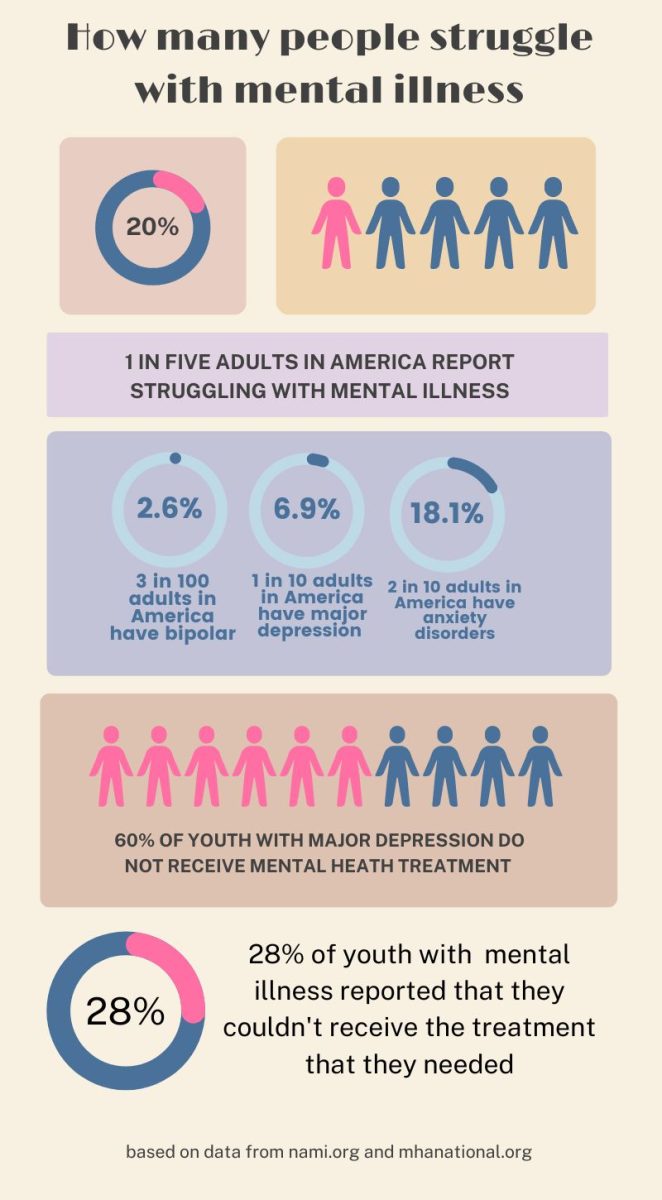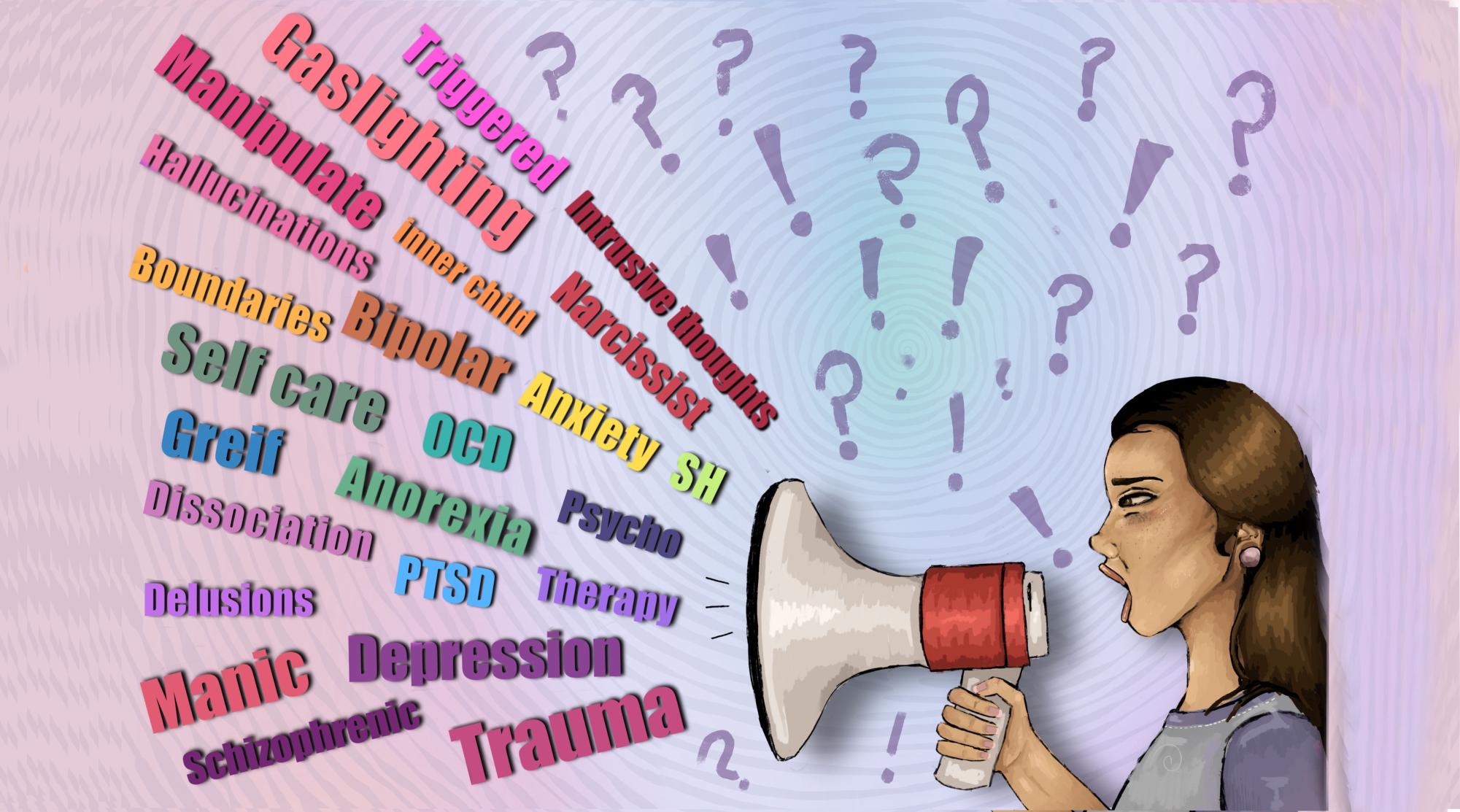In an era where discussions about mental health are no longer conducted in hushed tones and whispers, a myriad of questions arises concerning the normalizing of terms once confined to psychiatrist offices.
Over the past decade, terms such as post-traumatic stress disorder, trauma, anxiety, obsessive-compulsive disorder, depression, and more have made their way into many people’s everyday vocabulary.
The widespread use of mental health terms marks a significant shift in societal attitudes, moving away from the stigmatization that individuals struggling with mental health endured for centuries.
In light of this transformative shift in societal attitudes toward mental health, Amanda Russell, a doctor of psychology (PsyD) specializing in Intensive Mental Health Services, offers a compelling perspective shaped by over two decades of experience in the behavioral health field. Her insights reflect the evolving discourse surrounding mental health and delve into the nuances of the implications associated with the widespread adoption of mental health terminology.
“In the past, even in the 1980s and 1990s, mental health was really something no one acknowledged, people who were struggling were just locked away. Mental illness was this sort of secret,” Russell said.
The past treatment of mental health discussions lies in stark contrast to the current prevalence of mental health terminology and the implications of its popularity.
This newfound popularity raises many questions about whether this trend carries positive or negative connotations.
The current normalization of mental health terms raises critical questions. Russell acknowledges the positives but warns of potential misconceptions.
“A lot of people have challenges at some point in their lives with mental health, and I think these words can help people bring some of those challenges to light. However, a caveat to the vast usage of these terms is how easily they can be misconstrued,” Russell said. “Even though the terms are used, do they mean the same thing to everybody?”
Russell believes the positive effects of the popularity of these terms have outweighed the negatives.
“I think it’s leaning more towards the side of doing good. The wide usage of these terms is getting them out there,” Russell said. “People talk about things that were previously not discussed. These discussions help people feel a little more unified, preventing mental health from being a hidden thing that’s discussed behind closed doors.”
“We’ve come a long way in how we treat people,” Russell said. “And I do like the fact that it’s more commonly used, it helps break down the stigma.
Carlmont counselor Shelley Bustamonte agrees using these terms gets them out there and helps erode some of the stigma that these terms hold.
Bustamonte has been working with people struggling with mental health since graduating college and currently works with high school students in creating a positive environment to discuss and share mental health struggles.
“People in our society are more comfortable opening up and discussing their struggles,” Bustamonte said. “Mental health shouldn’t be something people are ashamed of or feel they need to hide. You just need to recognize that you’re only as healthy as your secrets, and if you are not talking about something, it’s not healthy.”
Historically, negative perceptions about mental illness, often held subconsciously, cast a shadow over valuable discussions.
In past years, if someone shared their experience of mental illness symptoms, the repercussions were scrutiny, ostracization, and, in many instances, the admission led to fatal consequences, according to Open Stax College.
This is possibly why 60% of youth with major depression do not receive mental health treatment. In fact, a study from the National Institute of Mental Health reported that 1 in 5 Americans experience mental illness. By discussing mental health freely and not making these terms taboo and stigmatized, more people will feel more comfortable discussing what they are feeling.
Micheal Schocket, the Executive Director of Caminar Jobs Plus has been working to help people with mental illnesses get jobs for over 50 years. He highlights the importance of people being aware of these terms in the work field.
Even less than 15 years ago, individuals with mental illness were often denied jobs. However, when people are more familiar with these terms, they tend to have more compassion for mental health issues.
“When someone is aware and educated about the existence of mental health, it’s a lot easier to get them the job,” Schocket said. “It’s all about commonality and sharing the challenges that this country deals with.”
(interactive image)
However, Schocket also feels the casual use of these terms takes away from the severity of these illnesses. He thinks that the use of these medical diagnoses, such as schizophrenia, bipolar, and OCD, has caused people to become somewhat desensitized to the actual severity of these words.
“In both online platforms and real-life conversations, I often come across statements like, ‘You have a mental illness, you have schizophrenia, you have depression, you’re insane.’ What many fail to comprehend is that mental illness, in essence, is an illness. In some respects, it can be likened to a disease, and it’s crucial for people to grasp this concept,” Schocket said.
The increased accessibility to mental illness can be widely attributed to social media platforms. Apps such as TikTok and Instagram have become leading forces in the spread of mental health terminology. This broad usage on social media has caused many to adopt these terms after quickly seeing videos with individuals referencing mental health.
This openness has raised awareness for those unfamiliar with mental health and also provided a platform for people to seek support and assistance. This openness has catalyzed individuals into getting help and allowed many to develop an understanding of what they are going through.
“I think it’s okay to see a social media post with something like ‘symptoms of depression’ and recognize if you share those symptoms. Social media can serve as an important first step to finding help,” said Erica Hu, a Carlmont Sophomore. “However, after the initial realization, it’s very important to talk to a doctor or a psychologist before casually using these terms. ”

Dr. Kyle Jones, PsyD, recognizes that although individuals often use these terms without meaning harm, the use of these words could end up being misleading, with people not fully comprehending what they are saying, and end up creating a very watered-down version of these disorders.
“I think some terms could become misleading, though it might not be said with unkind or malice intent, when they see people who exude the symptoms of severe mental health issues, they don’t understand it,” Jones said.
Jones Feels the overall popularity of these terms can undermine the severity of these conditions and further contribute to the spread of misinformation and misconceptions about mental health.
“So many of these mental health issues are seen as quirks or as personality traits when in really, these diagnoses devastate lives to the point where you’ve got folks unable to work and unable to engage in their lives. I think some of the commonly used language doesn’t necessarily match up to what it might look like in a clinical setting.” Jones said.
When discussing these terms, striking a balance becomes difficult. On one end of the spectrum, there’s a concern about avoiding the stigmatization of these terms and reverting to a time when mental illness was shrouded in secrecy. However, on the opposite end, there’s a risk of unintentionally causing a dilution of the profound weight these terms carry.
While it is acknowledged that using these terms can help reduce stigmatization, it is crucial for individuals to be well-informed about mental health terminology and to recognize the impact of their words when discussing mental illness.
“By articulating their feelings and seeking appropriate treatment, a more productive discourse on mental health can unfold, benefiting everyone involved. Open and transparent communication is crucial to fostering a more empathetic and comprehensible dialogue surrounding mental health,” Jones said.



